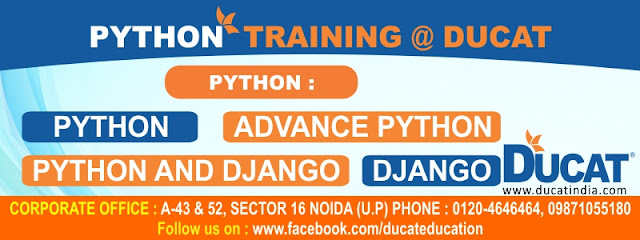What is Python Programming Language?
What is Python?
Python is a general-purpose, cross-platform, and object-oriented scripting language.
Python is a high-level, interpreted language where the program’s interpretation of
machine language happens at runtime.
Python was created in the early 1980s by Guido van Rossum at the National Research
Institute for Mathematics and Computer Science inside the Netherlands. Guido
named it after ‘Monty Python Flying Circus,’ a British comedy series, the scripts he
became reading when he began enforcing Python.
Python was released to the public in 1991 and was introduced as a successor of the
ABC (All Basic Code) language.
Features of Python
The features of Python are as follows:
- Open-source
A python is open-source software. The source code of Python is available to every
the person at no cost.
- Object-Oriented
Python is an object-oriented programming language that includes functions,
including classes, inheritance, objects, and overloading.
- Ease of learning
Python has easy-to-learn syntax (more English like syntax) and has an extensive
a standard library that makes it a beginner’s language.
- Interactive
Python is interactive mode makes it simple to test short snippets of the program.
There is also a bundled development environment known as IDLE.
- Extendable
Python is frequently called a ‘glue’ language. It is easily extended through including
new modules implemented in a compiled language consisting of C or C++.
- Standard Libraries
Python comes with a vast standard library that provides routine programming
functions linked to internet servers, searching text with regular expressions, reading,
and changing files.
Uses of Python
Python is a commonly-used language for scripting within the following cases:
System utilities (system admin tools, command-line programs).
Web development
Graphical User Interfaces (Tkinter, gtk, Qt).
Internet scripting
Embedded scripting
Database access and programming
Game programming
Rapid prototyping and development
Distributed programming
Let us take a look at the role of python in the following domains:
Python on the Desktop: We can write desktop applications in Python, using
frameworks that include WxPython, Tkinter, or PyGTK. Many desktop applications
are as yet written in compiled languages, including C, C++, or C#. The frameworks for
these languages influence to have more refined development tools. The subsequent
applications are frequently simpler to distribute, as they do not need the client to
have Python introduced.
Python has proper graphical development tools, including Wing IDE and the Eclipse
PyDev extensions. But, most Python engineers work "Unix style" with standalone text
editors and terminals. Platforms like Java or .Net, environments including Microsoft's
Visual Studio, will consistently provide tighter integration with the programming
language.
Python for the Web: Several successful quick Web application structures are
accessible for Python, each with its inclination. The most famous framework include
Django, Pylons, TurboGears, CherryPy, Zope, and Grok (because of Zope).
The major drawback of utilizing Python in an undertaking setting is that Python
software engineers can be harder to discover than Java developers. Python is simple
to pick up for a professional programmer, but Python cannot coordinate the plethora
of books, education courses, and certifications in the Java world.
Besides, the power and expressivity that Python provides imply that it can need
more skilled developers. Java or C# are more restrictive by design, imposing
programmers to comply with stricter guidelines around type safety and interface
consistency.
Python is a popular scientific language and a developing star for machine learning. It
is often compared with R. The matrix handling in NumPy can challenge MATLAB, and
specialized tools like IPython are appealing and a phase into the future of
reproducibility.
A SciPy stack for machine learning and data analysis can be utilized for one-off tasks,
and frameworks like sci-kit-learn are sophisticated adequate to be used in
production systems.
Ducat is the best option in the market for
candidates who are seeking for Python certifications. Also this institute has a
big list of python certified engineers and you can check the past performance
as well by visiting our institute in Noida. As we are an authorized training
partner of various IT program and certifications so we strive to provide
detailed information to all the aspired candidates along with an option of
tailor made solution to attend courses' classes as per their requirements that
is why we are the Best Python Training Institute in
Noida.

Comments
Post a Comment